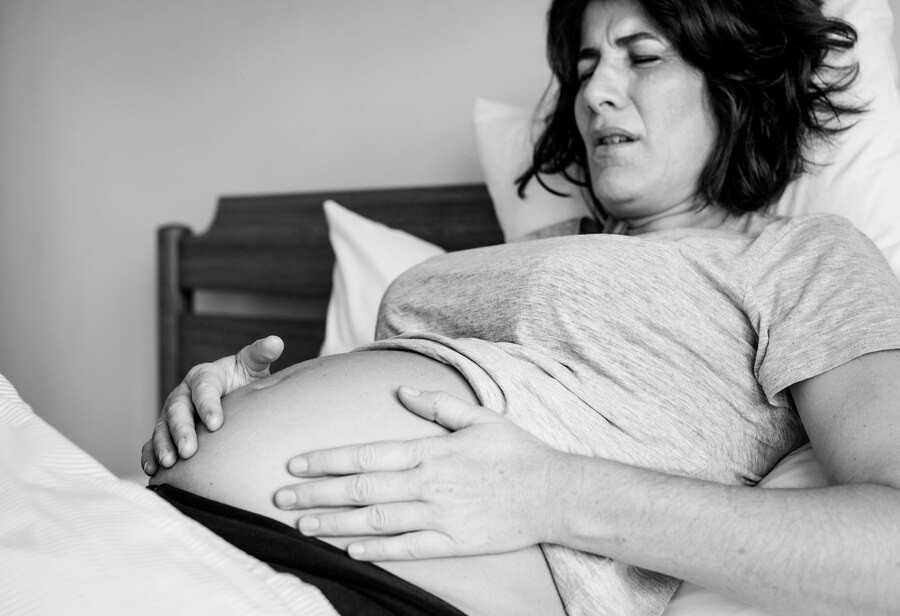Angka Kematian Ibu (AKI) di Indonesia per Januari 2023 masih tercatat cukup tinggi, yaitu di kisaran 305 kasus per 100 ribu Kelahiran Hidup. Angka Kematian Ibu di Indonesia dihitung saat ibu hamil meninggal karena sesuatu yang berhubungan dengan kehamilan atau persalinan, atau dalam periode 42 hari setelah berakhirnya kehamilan atau setelah melahirkan.
Penyebab Kematian Ibu Hamil
Kematian ibu terkait kehamilan atau persalinan dapat disebabkan oleh banyak hal, di antaranya:
Perdarahan postpartum (PPH)
PPH adalah kondisi yang dapat terjadi saat seorang ibu hamil, melahirkan disertai perdarahan berlebihan. Kehilangan darah yang berlebihan setelah persalinan menjadi situasi yang serius dan sangat membahayakan nyawa ibu.
Perdarahan postpartum perlu mendapatkan pengobatan dan perawatan, bahkan mungkin tindakan pembedahan jika diperlukan. Dalam situasi darurat, Anda juga mungkin membutuhkan transfusi darah sebagai bagian pengobatan.
Tekanan darah tinggi dan eklamsia
Tekanan darah tinggi dan eklamsia adalah kondisi serius yang dapat menyebabkan kematian ibu selama kehamilan, persalinan, atau pascapersalinan. Eklamsia sendiri adalah komplikasi kehamilan yang terjadi setelah 20 minggu kehamilan, yang ditandai dengan tekanan darah tinggi parah.
Eklamsia juga dapat disertai gejala lain seperti kejang, gangguan kesadaran, nyeri kepala berat dan masalah di berbagai organ tubuh. Kondisi ini merupakan kondisi darurat medis, di mana ibu yang mengalaminya perlu segera mendapatkan pertolongan di rumah sakit agar bisa mendapatkan obat-obatan yang mengendalikan tekanan darah dan pertolongan lainnya.
Eklamsia yang tidak diobati atau tidak ditangani dengan cepat dapat mengakibatkan komplikasi serius seperti kerusakan organ, perdarahan dan yang terburuk adalah kematian ibu.
Baca Juga: Penyebab Bumil bisa Mengalami Preeklamsia
Sepsis dalam kehamilan
Ibu hamil mungkin mengalami infeksi selama kehamilan, seperti infeksi saluran kemih, infeksi rahim, dan lain sebagainya. Infeksi tersebut dapat berkembang menjadi sepsis, di mana tubuh merespons infeksi dengan reaksi peradangan sistemik yang parah.
Sepsis dapat menyebabkan disfungsi organ, tekanan darah rendah, gangguan pembekuan darah , kebingungan perubahan tingkah laku, gangguan kesadaran hingga kematian. Oleh karena itu, sangatlah penting mencegah terjadinya infeksi selama kehamilan.
Emboli paru
Emboli paru adalah penyumbatan arteri paru-paru oleh gumpalan darah. Kondisi ini langka, namun bila terjadi selama kehamilan dapat berakibat serius hingga menyebabkan kematian pada ibu hamil atau pascapersalinan.
Emboli paru dapat disebabkan oleh gumpalan darah yang terbentuk di bagian lain tubuh seperti pembuluh darah kaki atau panggul yang kemudian berpindah ke paru-paru. keadaan seperti tidur telentang dalam waktu yang lama meningkatkan risiko emboli paru pada ibu hamil.
Ibu hamil juga berisiko mengalami kematian akibat komplikasi kehamilan seperti plasenta previa, robeknya rahim atau kehamilan ektopik. Sangatlah penting untuk menjaga kesehatan kehamilan agar menurunkan risiko kematian ibu hamil atau pascapersalinan.
Baca Juga: Kondisi Kehamilan yang Termasuk Darurat Medis
Cara Mencegah Kematian Ibu Hamil
Menurunkan Angka Kematian Ibu menjadi prioritas kesehatan global, termasuk pemerintah Indonesia. Ada banyak langkah yang bisa diambil untuk menurunkan AKI dan mencegah kematian ibu hamil, di antaranya:
- Memberikan asupan nutrisi yang seimbang selama kehamilan, termasuk makanan seimbang gizi, suplemen yang dibutuhkan dan menghindari makanan yang berisiko tinggi
- Mengelola penyakit kronis dengan baik
- Memeriksakan diri ke dokter secara rutin sesuai dengan jadwal yang disarankan
- Mencegah infeksi dengan tindakan pencegahan seperti vaksinasi, menjaga kebersihan tangan, mematuhi etika bersin dan batuk
- Mendapatkan pengobatan komplikasi kehamilan
- Meningkatkan kesadaran akan pendidikan kesehatan ibu dan kehamilan
- Mendapatkan akses layanan kesehatan kehamilan yang baik
Terkait kesehatan kehamilan, Anda juga bisa memanfaatkan layanan konsultasi kesehatan dengan mengunduh aplikasi Ai Care melalui App Store atau Play Store.
Mau tahu informasi seputar kehamilan, menyusui, kesehatan wanita dan anak-anak? Cek di sini, ya!
- dr. Monica Salim
Donna Murray, RN, BSN (2022). Maternal Mortality Rate, Causes, and Prevention. Available from: https://www.verywellfamily.com/maternal-mortality-rate-causes-and-prevention-4163653
dr. Siti Nadia Tarmizi, M.Epid (2023). Turunkan Angka Kematian Ibu melalui Deteksi Dini dengan Pemenuhan USG di Puskesmas. Available from: https://sehatnegeriku.kemkes.go.id/baca/rilis-media/20230115/4842206/turunkan-angka-kematian-ibu-melalui-deteksi-dini-dengan-pemenuhan-usg-di-puskesmas/
March of Dimes (2020). Postpartum hemorrhage. Available from: https://www.marchofdimes.org/find-support/topics/postpartum/postpartum-hemorrhage
The American College of Obstetricians and Gynecologists (2023). Preeclampsia and High Blood Pressure During Pregnancy. Available from: https://www.acog.org/womens-health/faqs/preeclampsia-and-high-blood-pressure-during-pregnancy
Cleveland Clinic (2022). Eclampsia. Available from: https://my.clevelandclinic.org/health/diseases/24333-eclampsia
WHO: Maternal sepsis. Available from: https://www.who.int/teams/sexual-and-reproductive-health-and-research-(srh)/areas-of-work/maternal-and-perinatal-health/maternal-sepsis
United Lincolnshire Hospitals NHS Trust (2023). Sepsis: understanding serious infection in pregnancy and after birth. Available from: https://www.ulh.nhs.uk/services/maternity-services/maternity-services-information/sepsis-understanding-serious-infection-in-pregnancy-and-after-birth
Robyn Horsager-Boehrer, MD (2021). Pulmonary embolism in pregnancy: Know the symptoms and risks of blood clots. Available from: https://utswmed.org/medblog/pulmonary-embolism-pregnancy/











